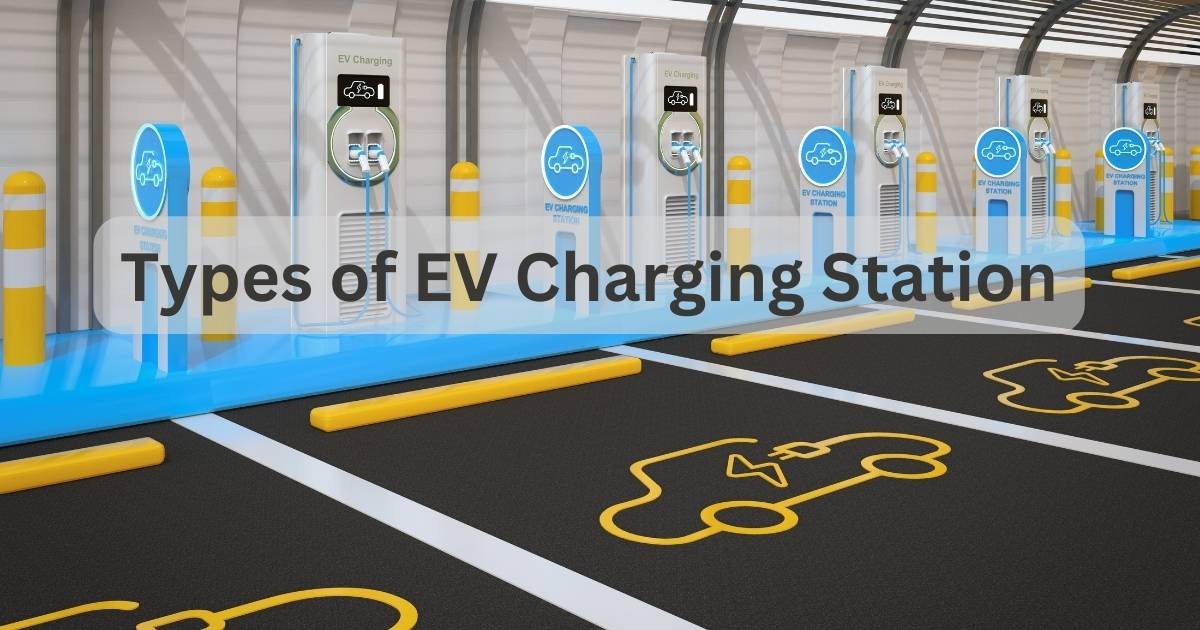This article covers the detail about the types of EV charging station more people are choosing to buy electric cars. Before purchasing an EV, a buyer would typically have the following inquiries regarding the different kind of charging station. Eighty percent of an EV driver’s auto charging is completed at home.an electric car is quite simple to charge.to refuel your car all you have to do is connect it into charging station.
Types of charging station according to the power output rating
Level 1 Electric Vehicle Charging Stations
Voltage: 120 volts
Power Input: Typically between 1.4 and 1.9 kW
Charging Time: The slowest option best for overnight charging
Type of Connector: Regular home outlet
Application: Suitable for emergency charging, sporadic use and home charging
Level 2 Electric Vehicle Charging Stations
Voltage: 230 volts and 240 volts
Power Input: Ranging from 3.3 kW to 22 kW
Charging Time: Faster than level one ideal for home, work and public parking
Types of Connector: Type 2, J1772
Uses: Commonly used for public charging, office charging and home charging
Level 3 Electric Vehicle Charging Stations
Voltage: Ranging from 200 to 1000 volts DC
Power Input: Varies from 50 kW to 350 kW
Charging Time: Much quicker than level 2, including rapid charging
Types of Connector: CHAdeMO, Tesla Supercharger
Applications: Used for long-distance travel, highways, cities, and business spaces
Tesla Supercharger
Exclusively available for Tesla vehicles
A DC fast charging infrastructure designed specifically for Tesla
Provides high-speed charging at a capacity of at least 250 kW
Exclusive Tesla connector
Applications: Primarily for Tesla owners and long-distance travel
Types of EV charging station according to the current output
AC Charging Station
AC EV chargers produce a type of electric current called AC (Alternating Current) and accept electricity in the same AC form. Think of these chargers as translators for your electric vehicle. They take the AC current from your home or charging point and, with the help of your car’s onboard charge controller, convert it into the DC (Direct Current) your cars battery needs. This process ensures that your electric vehicle gets the right type of electricity to charge effectively.
AC charging stations come with smart features like data analysis, safety measures, and metering. These features help you monitor and control the charging process, ensuring it’s safe and efficient.
DC Charging Station
DC EV chargers are a bit different. They provide DC current as the output and accept AC electricity as input. The key distinction is that they skip the translation step performed by your car’s onboard charge controller. Instead, the DC charger sends the direct current straight into your car’s battery.
This direct transfer results in faster charging, making DC charging stations a great choice when you need a quick top-up. They are often found at high-speed charging locations like petrol stations, highways, and restaurants, allowing EV users to make brief stops for a fast charge before continuing their journey.
Types of charging station based on location
Destination specific charging station
Destination charging station can be found in a variety of locations, including malls, hotels and residential complexes. these are typically AC chargers with low voltage.
Using the on the go charging stations
For those considering electric vehicles, understanding the convenience of different Types of EV Charging Stations is important. EV users can come to petrol pumps, highways, restaurants to use the on the go charging station where they can stop for a short while, charge their cars and continue on their way. These are often high voltage and made up of DC fast charger which have quick charging time. Typically, these charging stations are connected with an EV charging management system enabling EV customers to utilize smart cards or a mobile app to manage the station independently.
Frequently asked questions about Types of EV Charging Station
What is the cost of charging an EV?
One of the unstated expense of owning an EV is the installation cost of the home charger. the setup is one time only and the electricity bills reflects the unit used. The quantity of electricity used by charging determines the total cost.
What is the ideal rate of charge of an electric car?
How often to charge an EV is one of the most common queries regarding EV charging. The driving style and range of an electric vehicle will determine this. In terms of range. In terms of range there are a lot of long range electric cars that can rival any petrol powered vehicle.
Is it compulsory to use a charging station to charge an EV?
The availability of home charger is one of the main advantage of owning an EV. Drivers can avoid going to the station by suing their home EV charging station.
Conclusion
There is different types of EV charging station and EV chargers in the market. Level 2 chargers are more widely used and offer quicker charging period than level 1 charger which are most basic and slowest. The quickest charger is the DC fast charger however they also cost the most. While they are also available, wireless chargers are less effective and require more time to fully charge an EV.
I am David seasoned content writer, excels in crafting engaging, SEO-optimized content across diverse industries, driving engagement and results.


1 thought on “Types of EV Charging Stations: Powering Up Your Electric Vehicle”